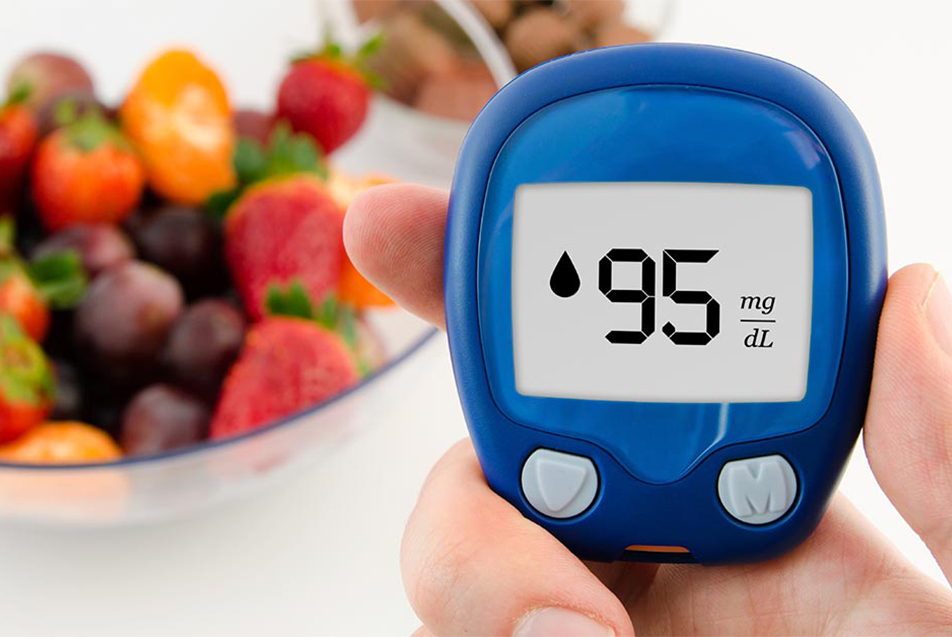
If you have diabetes, you know there are a lot of decisions to make about your daily activities: What and when to eat, when to check your blood sugars, when to take medicines and when to seek support from your health care team, to name a few. In addition to your regular routine, there is more you can do control and improve your condition. In recognition of World Health Day, Parkview Diabetes Treatment Center staff offers some key actions you can take to beat diabetes.
1. Know your numbers
Understand the importance of tracking details such as blood sugar, A1C, blood pressure and cholesterol.
- Daily self-measurement and recording your blood sugar readings provides you with immediate feedback about how your regimen is working. Having this information written down allows you to look for trends at various times during the day or week and can be very useful to your doctor when he/she makes decisions about the next steps in keeping your diabetes in control. Everyone with diabetes should be testing their blood sugar at least once a day. Those on oral medications should check blood sugar twice daily. If you are on insulin, you should be checking your blood sugar four or more times a day.
- Your doctor will typically order an A1C or Estimated Average Glucose test every 3 - 6 months. This lab test provides information about how your blood sugar has been over the past 2 - 3 months and provides information to your doctor about how well the regimen you are following is working. Research has shown the direct relationship A1C and blood sugar control have to the risk of developing complications such as kidney, nerve and eye damage.
- Knowing your blood pressure and the steps you can take to keep your blood pressure on target is important in reducing the risks of heart disease, kidney disease and stroke. Your doctor should check your blood pressure at each office visit.
- It’s important to know your cholesterol, including your HDL or “good” and LDL or “bad” cholesterol, to keep track of and understand how they can relate to your diabetes management and overall risks for heart disease. Cholesterol levels should be reviewed at least once a year.
2. If you smoke, please stop!
Smoking has been proven to cause many health issues, including cancer and heart disease. For diabetics, the risk for heart disease, kidney disease and nerve damage is even greater if you smoke. Talk with your doctor about ways you can stop smoking or find a smoking cessation program. Because the long-term effects of e-cigarette use are not known, the American Diabetes Association cautions individuals about using them as a substitute for smoking tobacco cigarettes.
3. Try to follow a healthy meal plan.
Nutrition and healthy eating play a big role in overall health. Understanding how different foods affect your blood sugar is a big step in getting your diabetes under control and can help you achieve and maintain a healthy weight. All foods can be worked in to a healthy meal plan safely once you understand meal planning for diabetes. Your doctor can refer you to a Registered Dietitian or Diabetes Educator who can help teach you the how to create a healthy meal plan for your diabetes.
4. Plan for pregnancy.
If you are a diabetic and want to become pregnant, it is important for your health and the health of your baby to make sure your blood sugars are under control first. Talk with your doctor about what your target A1C result should be before getting pregnant. Once you become pregnant, it’s important for you to work closely and frequently with your healthcare team throughout each trimester. As your baby grows, and your body changes, so does your regimen for controlling your blood sugars.
5. Give yourself a break.
One of the keys to successful diabetes management is understanding how to cope with a chronic disease. Understanding that you don’t have to be perfect to manage your diabetes will allow you to enjoy life without feeling guilty or out of control. An occasional slip-up is to be expected. Put a plan in place to bring you back on track. It is important to understand that diabetes is a progressive disease and while we can try to control it each step of the way, we need to understand that sometimes things are not our fault. We may need to have a medication adjustment or a change in routine to get things back in check.
6. Be the leader of your diabetes care team.
While there are a lot of professionals who can support you on your diabetes care journey, you must be the leader. This begins with discussing your health care goals with your physician, diabetes educator or others on your healthcare team. Acknowledging your goals to yourself and others, is one of the first steps in beating diabetes in the short- and long-term. Making and keeping appointments and staying organized are also vital steps. Keep an updated calendar and write down questions for your care team so you’re prepared at appointments.
7. Don’t go it alone.
Find support. Whether it is through a diabetes support group, online connections, church group, or other source, being involved in a community will help you maintain positive connections that can improve your overall well-being and sense of community.
8. Become an expert.
Get educated on how to manage your diabetes, along with current and future health risks. You will make decisions about what you do each day, including when and what to eat, when and how to take your medicines, check your blood sugar and engage in physical activity. Working with an expert in diabetes self-management education will ensure you have the basic knowledge and skills to remain as healthy as possible.
9. Establish a goal plan.
Just as you probably wouldn’t plan a trip across the country without a map, you shouldn’t go blindly into managing your condition. Setting a goal plan into action will help you manage the necessary steps to gain confidence in beating diabetes.
10. Have a plan for when you get sick.
When you have diabetes, it’s important to have a plan for the days you really don’t feel well, especially if you take medicines and/or insulin for your blood sugar control. Even though your appetite may not be what it usually is, being sick can raise your blood sugars and possibly require you to take more medication than you normally would. Never stop taking your medications or insulin when you are sick unless your first call your doctor! Make sure you have a plan for how to stay hydrated with fluids, check your blood sugars more often and call your physician if you can’t keep food or fluids down for more than 4 - 6 hours, or if you have blood sugars that are running consistently over 240 mg/dL for 24 hours.



